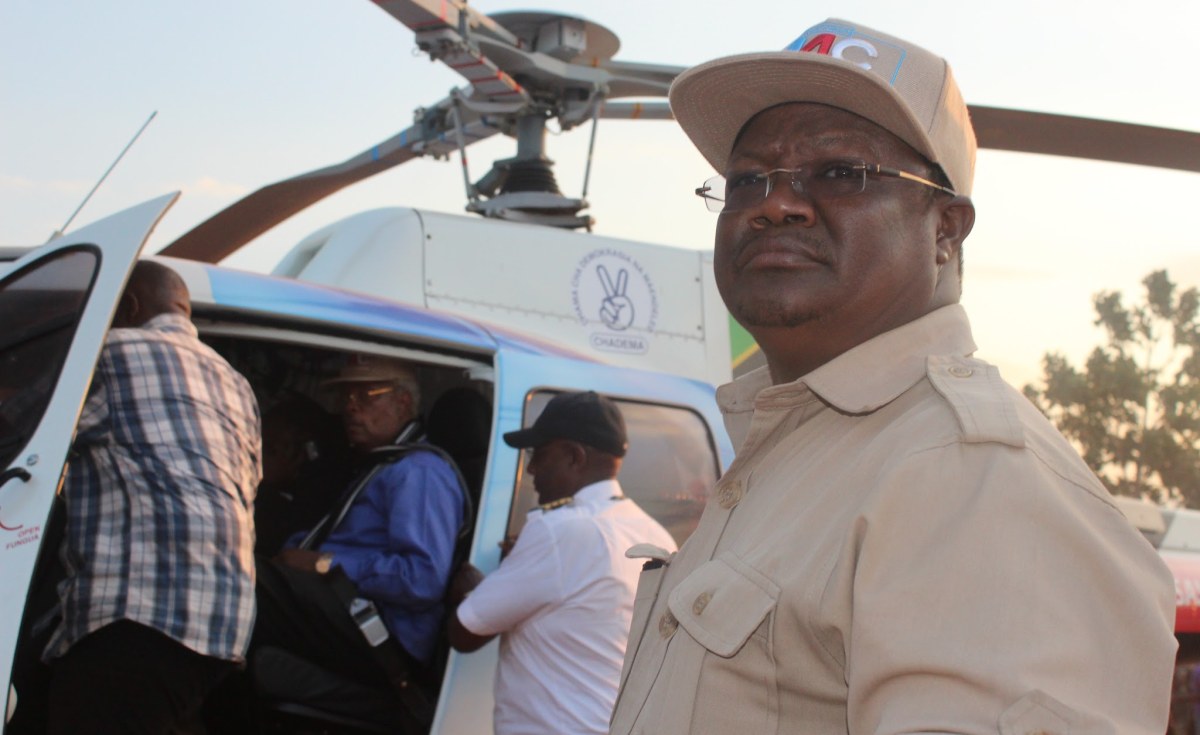
Dar es Salaam, Tanzania:
Tanzania opposition leader Tundu Lissu has returned to the country from self-imposed exile in Belgium, where he had lived since surviving an assassination attempt in 2017 when he was shot 16 times.
The outspoken politician arrived at Dar es Salaam airport Wednesday and was welcomed by hundreds of supporters, with many clapping and cheering.
Lissu was seen waving his Chadema party flag while perched through the sunroof of a car as he greeted supporters who had gathered along the roads and were following him on foot, in cars, and on motorcycles to a rally.
There, Lissu called for political change in Tanzania.
“Let’s not make God carry the burdens that we are capable of carrying,” he said. “The problem of life’s challenges is the problem of governance.” “If you are really tired, the medicine I will give you is this: let’s find a constitutional solution, let’s find a political solution, let’s find a new constitution.”
While living abroad, Lissu was a presidential candidate in the 2020 general election but lost in a landslide to the late President John Magufuli.
Chadema rejected the official results, saying the election was tainted with widespread irregularities.
Lissu’s supporters say his return paves the way for a return to democracy in the country.
John Pambalu, a national chairperson of Chadema’s youth wing, too, emphasized the new for a new constitution.
“We need to see there are political rights and for the steps that we are taking to advocate for the new constitution; his (Lissu’s) contribution is needed physically in Tanzania,” he said. “His contribution is needed in the party and the country and is essential in ensuring that we reach a point where we’ll write a new constitution that will bring democracy and true freedom.
Lightness Juma, a Chadema supporter, says Lissu’s return makes her happy and optimistic about the future.
“We are here in this place with happiness and joy as you can see, to welcome our beloved father who is going to be the president of Tanzania in 2025,” she said.
Lissu’s return comes almost three weeks after Tanzania President Samia Hassan lifted a ban on political rallies.
Imposed by former president Magufuli in 2016, the ban prohibited political parties from holding rallies and even engaging in internal political activities.
Since coming to power in 2021, following the sudden death of Magufuli, Hassan has moved away from many of her predecessors’ policies. Last year, she lifted restrictions on media outlets.
Source: allafrica.com
Share this news
This Year’s Most Read News Stories
John Okello: From Zanzibar revolution icon to street beggar
In the final episode, we look at Okello’s ban in Tanganyika, rejection in Kenya tragic end in Uganda.Continue Reading

US taps Tanzania for infrastructure plan in battle with China for minerals
Washington wants to tap into the country’s minerals, particularly its nickel mines.Continue Reading

Will Tanzania agree to Starlink Internet Service?
Will the Tanzania government let Starlink, the world-famous internet service provider, operate in the country?Continue Reading










